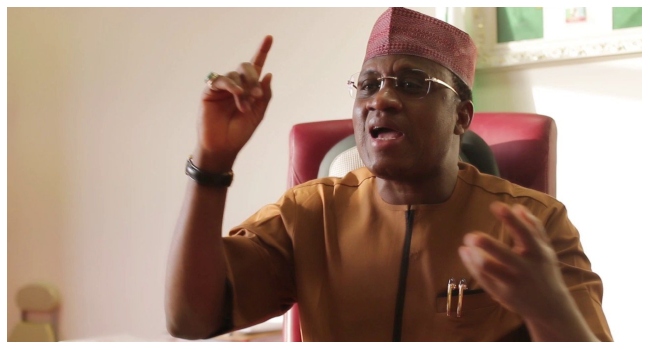Nasir El-Rufai, former governor of Kaduna State, has argued that he is free to use his constitutional right to freedom of association without getting police permission.
El-Rufai, who was a guest on Sunday Politics on Channels Television, refuted claims made by security forces that the ADC (African Democratic Congress) meeting in Kaduna had been canceled because the police had not been notified.
What constitutes proper notification? Which section of the Constitution is subject to law, and which section? No one can limit my ability to join or require me to provide a notice. He said on Sunday, “I can give if I choose, but it is not a legal or constitutional requirement.”
People should stop repressing themselves just because they are in charge today, the former governor continued. I served as governor of that state for eight years, but I never authorized or directed a political gathering to be held there.

El-Rufai claimed that the Kaduna State Government was behind the attack and that the police officers on the scene had no way of defending the residents.
“These thugs are funded by the government,” they claim. Former police officers were present, but now there are shadows of officers. I’m writing a petition to the Police Service Commission and the Inspector General of Police about their presence.
We are on our way to the total destruction of everything we stand for in this country, he said when law enforcement agents are used to facilitate and protect those who commit violence.
Governor Sani has never been my friend, according to El-Rufai.

alleged thugs allegedly hacked into a coalition of opposition parties in Kaduna State on Saturday, preventing the transition committee members from inauguration.
The assailants attacked participants and vandalized property while wearing cutlasses, clubs, and stones.
Along with the NPP, SDP, NPP, NPP, Labour Party (LP), and ADC, members of an All Progressives Congress (APC) faction that opposes the state’s leadership were also present in the coalition.
The inauguration continued despite the violence, even in tense circumstances. El-Rufai was given the blame for the incident, according to the Kaduna State Police Command.
Despite receiving numerous warnings, the former governor, according to its spokesperson, DSP Mansir Hassan, who claimed he misled the police and other security forces.
Hassan stated that an investigation had been launched into the alleged political hostility and the alleged shootings at the gathering.
El-Rufai criticized the police’s response and referred to the incident as “a dangerous descent into lawlessness” and warned against stopping political thuggery in the state.







